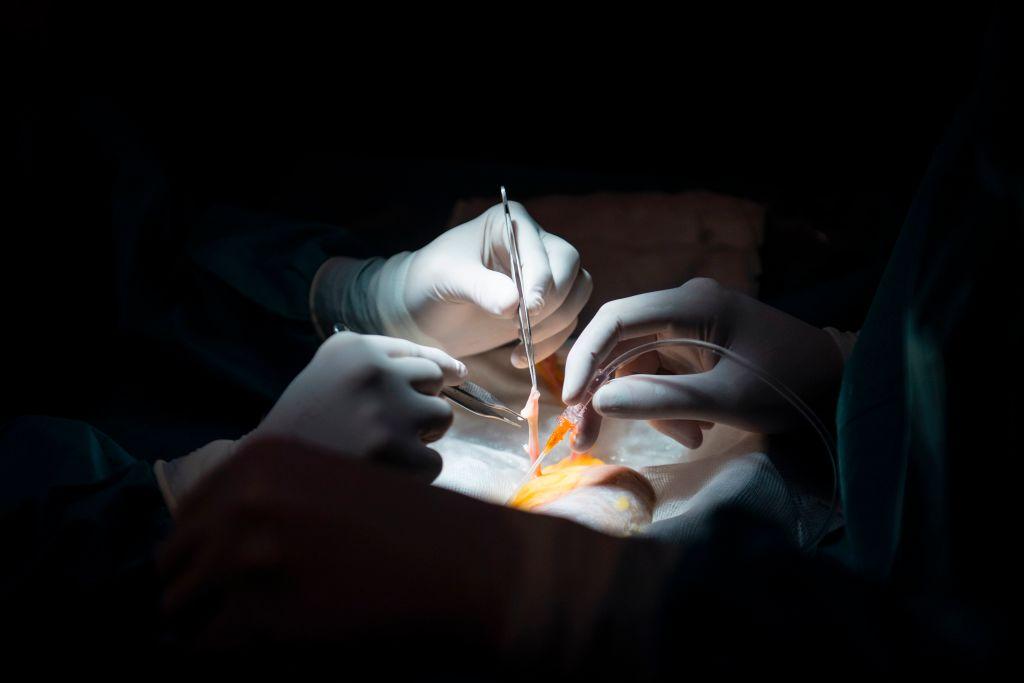A new study has called for the retraction of more than 400 research papers on organ transplantation over concerns that the organs may have been unethically harvested from Chinese prisoners who did not give consent to donate their body parts.
The Australian-led team of researchers found widespread failure by the international transplant research community to comply with ethical standards, which prohibits the publication of any research involving organs from executed prisoners, or that lacks donor consent.
Transplant Abuse in China
Experts and human rights organizations have called into question the source of organs used in China’s organ transplant system, which the Chinese communist regime has maintained since 2015 have come from voluntary donors. Prior to that, authorities claimed the organs only came from executed prisoners on death row.‘Failure of Action’
The study examined 445 studies that covered more than 85,000 transplants. It found that more than 92 percent of the studies failed to report whether the organs had been sourced from executed prisoners, and 99 percent failed to report whether donors had given their consent.In addition, there were 19 papers involving transplants conducted before 2010 that claimed no prisoners’ organs were used. During that time, however, there was no organ donation system set up in China—so that claim could not be true, the study said.
The researchers concluded that the studies examined almost certainly includes data from executed prisoners, “given China’s acknowledgement that during this period executed prisoners were the principal organ donors.”
This is the first study to track the progress of the transplant community in vetting unethical research.
Lead researcher and clinical ethics professor at Macquarie University Wendy Rogers said that reviewers, editors, and journal publishers failed to ask questions about the source of the organs from Chinese research.
“When you get this kind of failure of action, the result is that unethical practices can flourish,” Rogers said.
Enforcing Ethical Standards
While a number of bodies including the World Health Organization and The Transplantation Society (TTS), have condemned the use of organs of executed prisoners for transplants, including research arising from such transplants, there is no enforcement action backing up these ethical standards, the study said.Currently, there are no sanctions for ethical breaches, and no audits have been conducted investigating compliance, the paper stated.
Rogers said the transplant community has been aware of these concerns for some time, referring to TTS policies starting from 2006 barring conference papers and research involving organs sourced from executed prisoners.
“I don’t know whether [people in the transplant community] just forgot or they think it must have stopped by now,” Rogers said. “But I think if you’re working in a field, you have a professional obligation to be pretty careful about what you review and what you say about it.”
Rogers’s research found that the TTS’s official journal, Transplantation, published five papers in breach of its own policies banning publication of unethical research.
Precedent
In 2017, medical journal Liver International retracted a paper by Chinese transplant surgeons after ethicists queried the source of organs used in their research.The paper authors, who analyzed 564 liver transplants at a hospital in Zhejiang Province from April 2010 to October 2014, claimed that all organs were obtained from donors after cardiac death, and that no organs were taken from executed prisoners.
But Rogers and a group of academics at the time said it was impossible for one hospital to source that many useable organs given the low number of donated organs at the time. Moreover, livers from donors after cardiac death are only viable for transplant about a third of the time, meaning that the hospital would need access to a much larger organ pool than its voluntary donation system. The experts concluded that the only plausible explanation was the livers came from executed prisoners, including prisoners of conscience.
Dr. Torsten Trey, the executive director of Doctors Against Forced Organ Harvesting (DAFOH), a nongovernmental group based in Washington D.C., said the new findings were significant.
“The West might not be able to change China, but it can change its own behavior: transplant doctors could start with reading the reports and investigations that have been gathered in the past years,” Trey said in an email.
Trey said the medical community needed to push for stricter accountability from China.
“The international community and medical journals should send the signal that China should not tamper with ethical standards,” he said.





